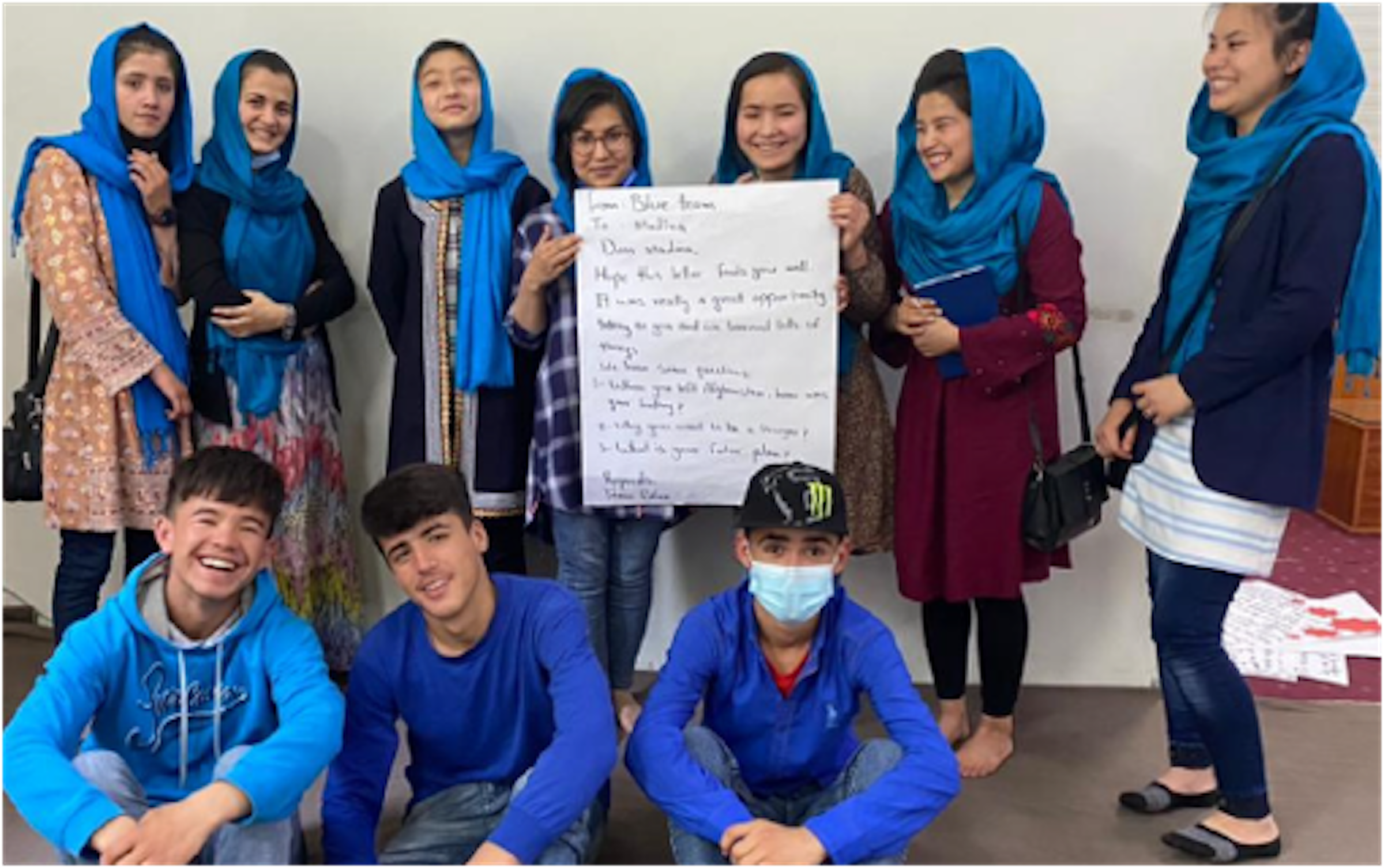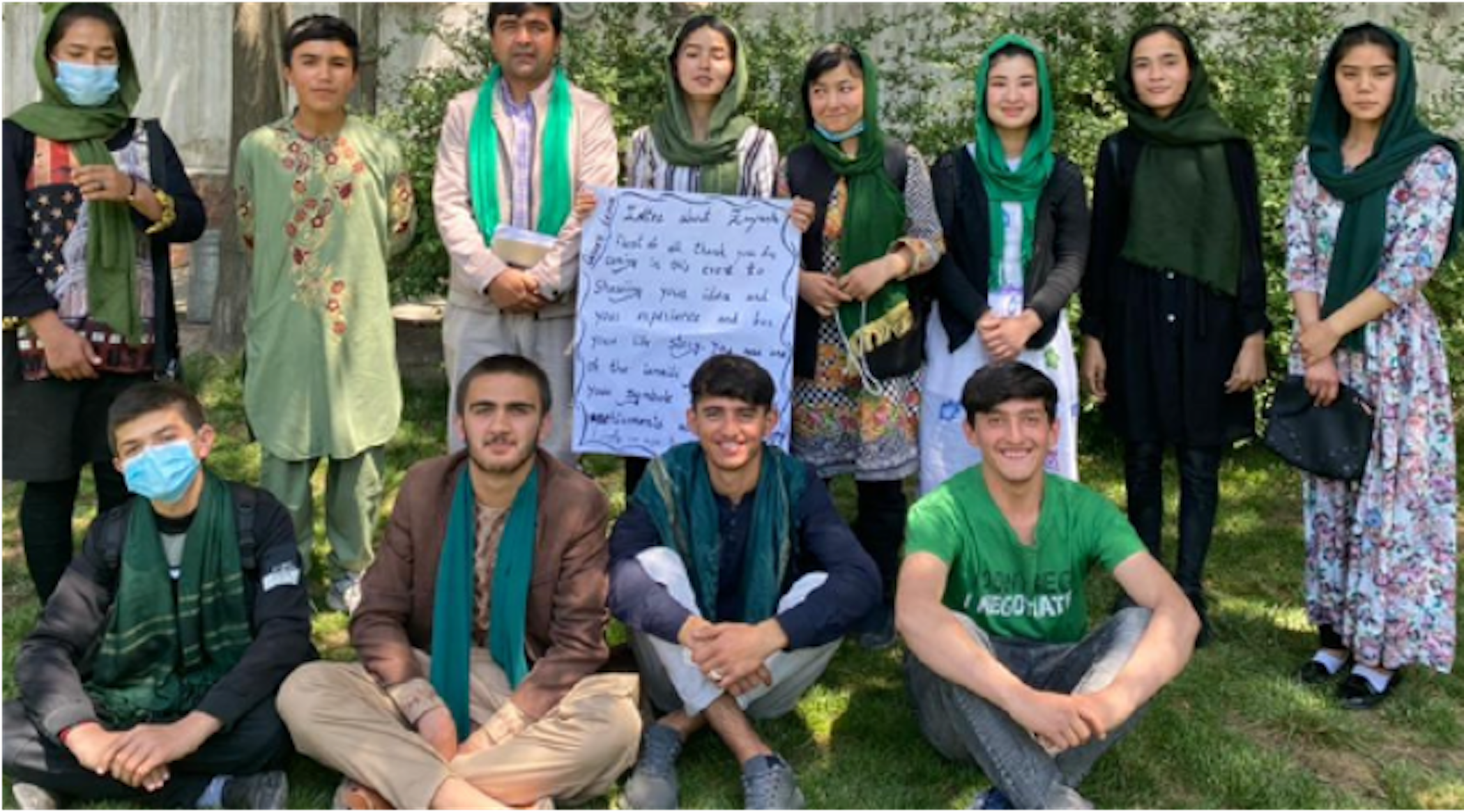At the virtual Afghanistan Conference in March 2022, Prince Rahim’s statement reiterated the Aga Khan Development Network (AKDN)’s 30-year commitment to improve the quality of life of Afghan people. This is being done, he said, by “keeping its hospitals and clinics open; assisting communities with food, shelter and livelihoods; and continuing to help thousands of children of both genders to access learning.”
During an especially uncertain time for the country and region, AKDN’s continued commitment offers support and hope to the Jamat and others, for them to build a stable platform for long-term progress.
Similarly, Jamati institutions have been operating programmes for Afghan Ismailis for many years. The newest initiative of the Canadian institutions in particular focuses on the English language.
Good knowledge of English is a necessary attribute that prepares children and adults of all ages to be better placed for financial security and for the best opportunities. Recognising this, the Canadian Council established the Afghanistan, Badakhshan, Canada (ABC) programme. The aim was to develop a cohort of better qualified English teacher trainers in Afghanistan, who could go on to teach others.
Sharing skills
During the height of the Covid-19 pandemic in 2020, the Council for Canada partnered with the Council for Afghanistan, along with volunteers and experts from around the world, to develop an online English language skills programme. The course was established under the ABC initiative, and entitled English Language Connections (ELC).
Delivered by an international volunteer team of 32 educators and 12 coordinators, the programme offers classes to learners in the Kabul, Badakhshan, Baghlan, and Balkh regions of the country, and helps to build connections between students and teachers.
“What we have developed is a virtual teacher training school, that is contextual and sensitive to the culture and realities of daily living,” says Riaz Jiwani, who leads the initiative. The objective is to help participants improve their English-language skills in order to assist other students in a similar manner.
Alongside ELC, a new pilot programme is focused on learners aged 14 to 17, to supplement their language and social skills, and to facilitate networking with peers around the world. The English Language Student Programme (ELSP) Journeys~Safarha, was piloted for 50 teenage participants in Kabul last year.
“I learned lots of things and enjoyed new experiences that I haven’t had before,” one young student said. “Through group working, I learned to be an active member of a team, and I feel a huge improvement in my English speaking skills.”
Lasting Impact
The ELC and the ELSP initiatives have each begun to pay valuable dividends.
“The dedication, commitment, and professionalism of the Afghan and international volunteers has made our English language programme a strong success,” says Ehsamuddin Dilawar, Chairman of the Aga Khan Education Board for Afghanistan. “Facilitating English language learning, through technology, for individuals in our Jamat in the farthest areas of Afghanistan will have a lasting impact.”
The results of the ELC pilot intervention are especially stark, indicating that 78 per cent of participants improved their grammar skills significantly, and 48 per cent increased a grade level during the 30-week course. Once they graduate, learners are invited to become trainers, and thus expand the programme to include many more participants in other parts of the country.
ELC2

This initiative’s successful blueprint has inspired similar launches in Iran, Syria, and Turkey, where some of the Afghan Jamat live. It has rapidly grown from an initial 100 learners in Afghanistan to over 1,000 participants in different parts of the world, all eager to improve their English.
“ELC has opened new doors for me,” says Mazdi Razzouk, a learner and educator in Syria. “I became familiar with effective, flexible, modern, and professional ways of teaching,” he added. “I am even getting new opportunities to work as an English tutor in Salamieh.”
Reciprocal growth
The ELC programme has also been beneficial for the volunteer teachers themselves, highlighting that knowledge and goodwill flows in both directions.
Fahima Naikpai, for example, came to Canada with her family two decades ago. When the opportunity to become a teacher’s aide was presented, Fahima accepted immediately, saying, “This has been my favourite project, as I am now connected to the Jamat there. It is a dream come true.”
As the ELC programme has evolved, it has fostered a reciprocal relationship between students and teachers.
“I feel very humbled and blessed to be able to put a smile on our students’ faces every week and play a small part in improving the quality of their lives, personally and professionally,” said educator Nadia Gilani. “In doing so, we are gaining much more ourselves,” she added.
“I look forward to our class every week, and it gives me immense joy to see perfect attendance. It has given me an insight into their lives, their culture, their language learning barriers, and so much more. It is indeed an enriching experience for me as an educator.”









